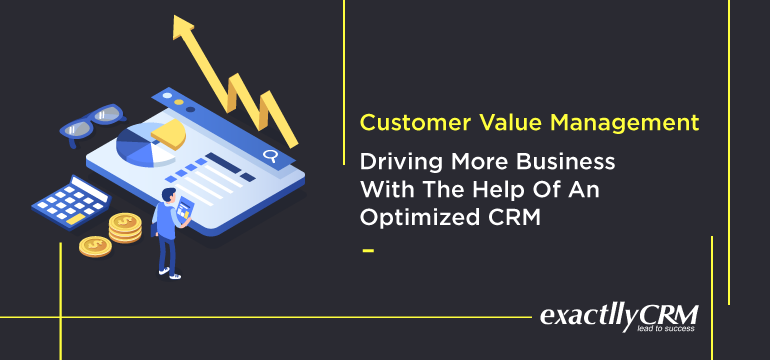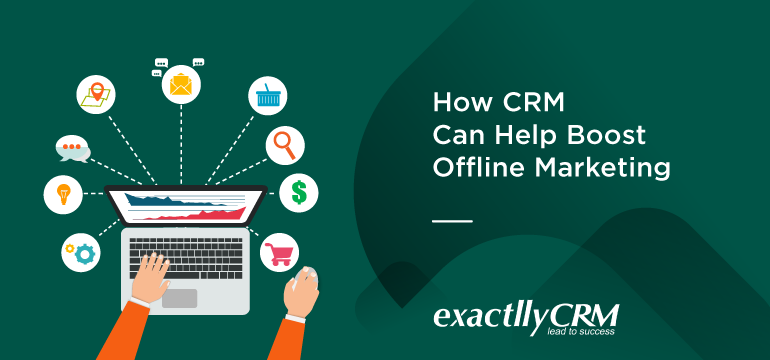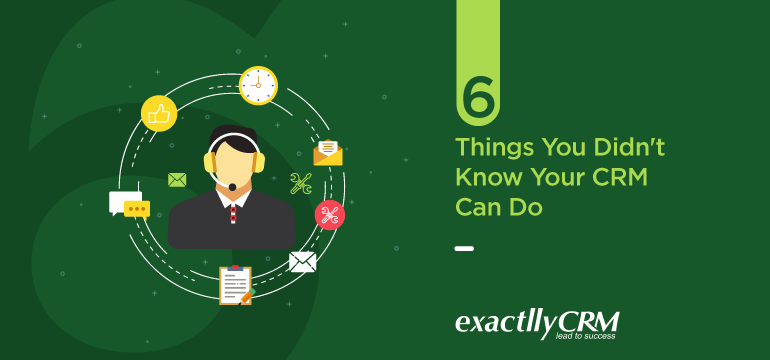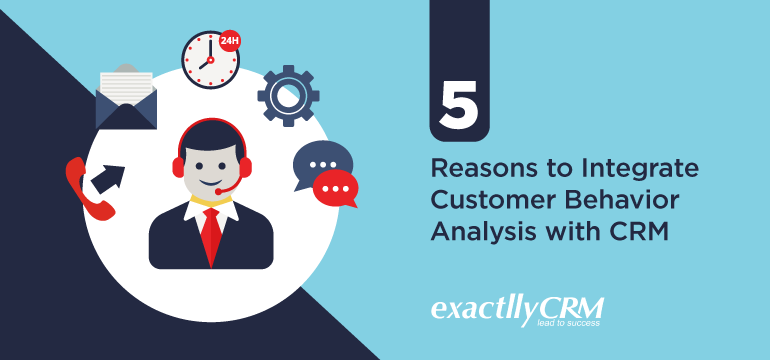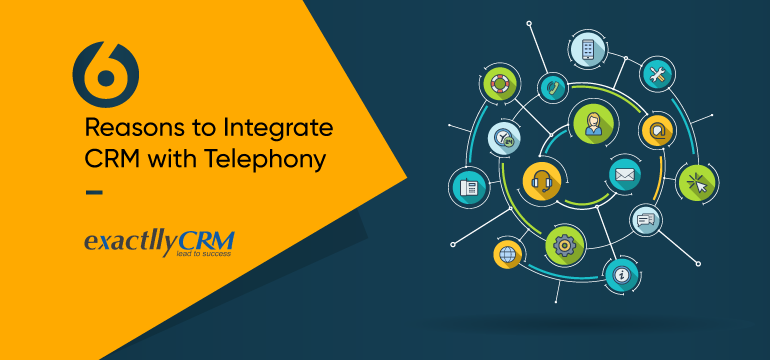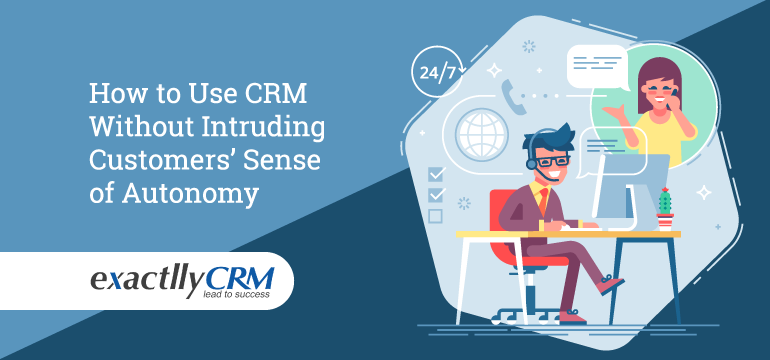8 Ways in Which CRM Software can Help you Close More Deals
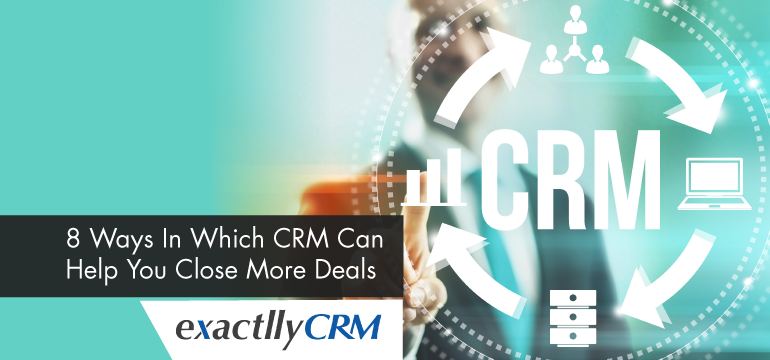
A CRM software helps enterprises to maintain strong business-customer relationships, and a well-organized CRM software system can efficiently keep track of all vital information within the organization, for small and large-scale businesses.
Here’s all you need to know about CRM software and how it can successfully aid business growth.
1. Ease of Access to Customer Data:
The advantage of CRM software is that with its assistance all vital information contained in your customer database network is documented in great detail, with absolute clarity and complete security. Pre-installed permissions and access regulations help in tapping into this information from anywhere through a centralized CRM network. As a result, one has full-proof knowledge and recorded data about all its customers at any given time. This data assists in closing any important sales deals or in tracking valuable leads. Furthermore, this data also helps to create invoices and quotes with utmost ease and to meet any prerequisite deadlines.

2. Identifying Customer Source:
Having a specific online portal through which leads can be generated makes business growth a more steady and unhindered process. Prospective customers can easily contact an organization of their choice with a more definite set of requirements by accessing the company’s official webpage.
These leads are more trustworthy and likely to end in successful and long-term customer-client relationships, as they are not passed on by word of mouth or initiated by effort invested and interaction made by the company itself.
The interest of the customer to build a professional bond with the company is evident and reliable when the products have been viewed by and requested, by the customer. An efficient CRM software network can easily monitor and investigate such promising leads to help any business grow.
3. Improved Execution of Sales Campaigns:
When it comes to pitching your company products to prospective buyers, a strong CRM software network can help in boosting the sales campaign. The CRM software does a thorough search of your existing database, to generate leads that have expressed interest and remove the bad leads, hence refining your search and maximizing your chances of increased sales.
A CRM software, therefore, helps in saving time, effort and valuable resources by rejecting questionable customer profiles and selecting the most lucrative options. It is advisable to opt for an efficient CRM software system that constantly updates and monitors advantageous sales leads to ensure high success rates of marketing campaigns.

4. Communication And Mobility:
In order to keep pace with the current demands and trends of today’s market, a company’s CRM database system has to be easily adaptable, comprehensive and dynamic in nature. It needs to be able to function with superior ease and process and share information across all access units, be it a mobile device or a computer desktop setup.
It is absolutely mandatory to establish the CRM software system as an efficient one, since data needs to be continuously regulated and readily available from any point. The features of the CRM software need to be the same across all mobile platforms so that the employees do not get selective information or lack complete data clarity.
A single, registered CRM software database network helps the company transfer vital information in any crisis situation to its new employees and project members. Since all company personnel has password run, profile-based, pre-decided access into the software network, any unwelcome crisis can be managed without hassle or threat to business growth.
Work can carry on effortlessly as any new team member who temporarily replaces another or compensates for a valuable loss of employee has equal access to the network. Due to CRM software being a cloud-based solution provider, mobile access from any compatible device greatly contributes to ease of communication between all project members without any limitations even outside office premises.
5. Marketing Assistance on CRM Software:
Converting a potential lead into a long-term customer requires diligence and perseverance. One not only needs to observe the market trend closely when targeting a potential client but also needs to create selective campaigns and monitor the purchasing trends of the lead. This gives the representative a fair idea of the conversion rate between the marketing campaigns and the actual performance of product sales.
Personalized statistical analysis and profiling of a customer helps in forecasting marketing strategies and building better business models. A well-developed CRM system provides an interactive platform for assessing the unique purchasing behaviour of a client and the strategy to adopt for such market inclination.

6. Automation of Fundamental Tasks:
Every customer account requires the input of basic information that entails the fundamental details of the lead. The utilization of such information is essential in multiple fields and makes the task of chasing a lead much more cumbersome. In order to complete a sale, a representative not only requires commitment from a potential customer but also needs to oversee legal formalities, the filing of reports and proper form-filling from his end.
The automation process of CRM software makes not only such tasks easier but also accurate and immune to human error. With the reliability of an efficient CRM system to back them up, it becomes easier for employees to focus their time and effort on closing such potential leads.
7. Better Turnover Time and Conversion Rate on CRM Software:
An approximate estimate of the turnover time or the time taken to convert leads into actual customers can be calculated using CRM software. The average calculated turnover time for any enterprise helps in managing email and marketing campaigns, and in identifying weaknesses within the existing system in comparison to global standards.
The importance of timing in business cannot be stressed enough. It is very important to have an idea of when to follow-up through emails and when to schedule sales to call for a prospect who is ready to be converted. This can be calculated by obtaining the average turnover time for a potential lead.
A final cumulative sales report summarizes the prospect-to-sale conversion rate and underlines missed-out opportunities, for a better analysis of the situation.

8. Cost-Effectiveness of Cloud-Based CRM Software:
Today, opting for cloud-based CRM software is the most feasible option for most businesses. The biggest advantage of having a cloud-based CRM system is the flexibility to accommodate the scalability needs of an enterprise as per the current market requirements. A cloud CRM may be scaled up or down on storage and user requirements at the company’s discretion, which in turn cuts down the total cost-to-company.
Small businesses which lack the resources as well as the experience to run a separate IT section lookout for reliable vendors to run their CRM system efficiently and at cost-effective rates. This also transposes the responsibility of running integrated office applications and regular data backups, from the enterprise onto the vendor. Feel free to Contact Us and get a Free Demo.

